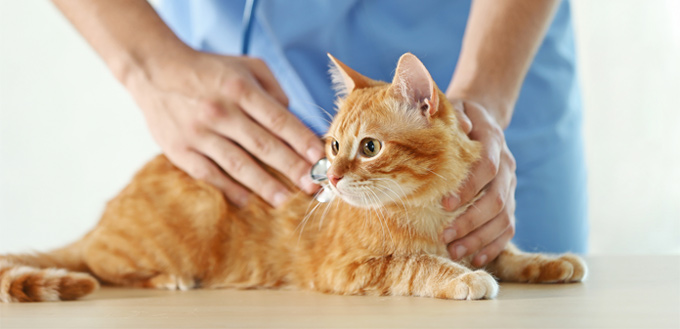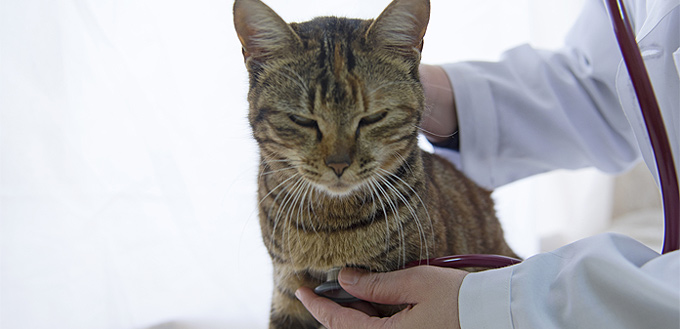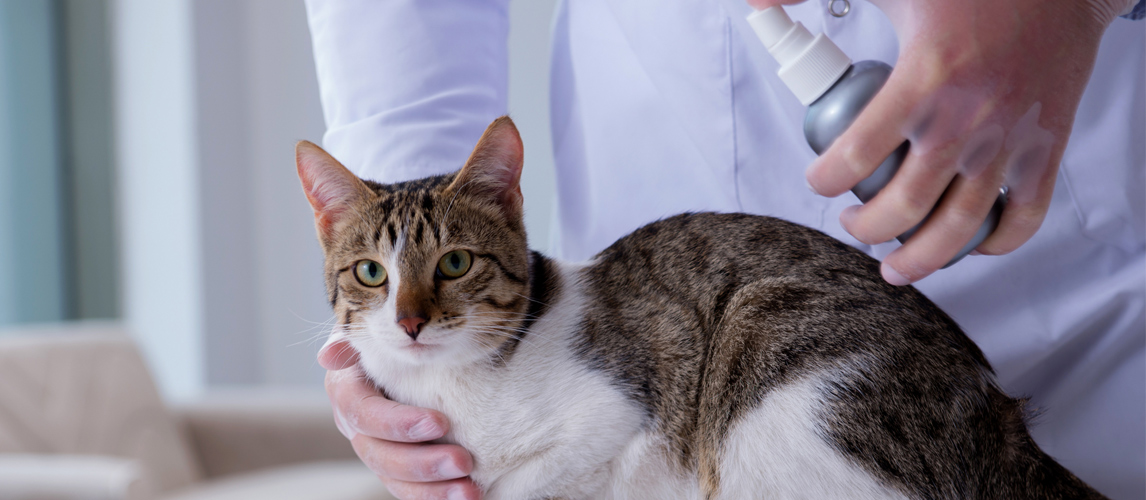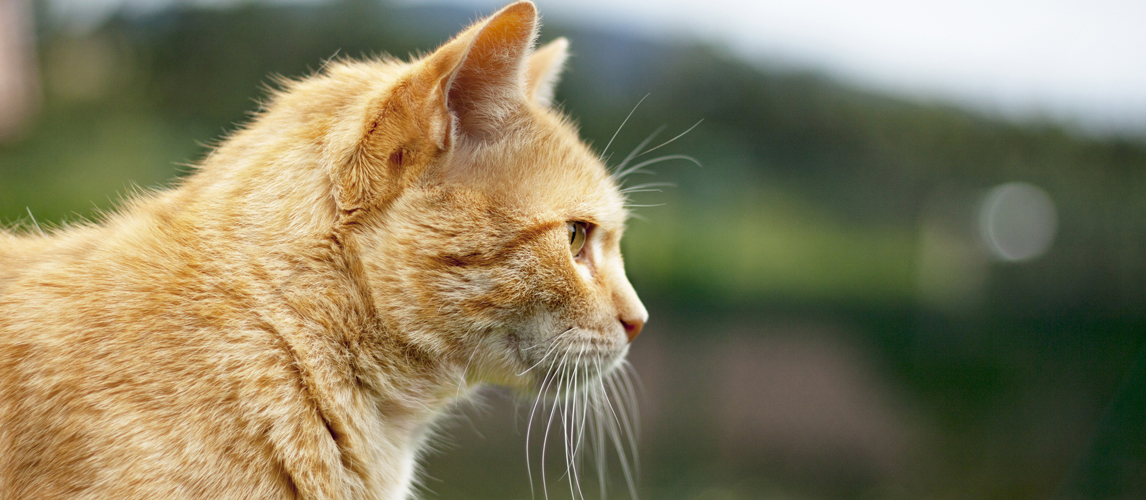When your cat is sleeping on you, you might notice that its heart is beating much faster than yours. Normally, they have an average of 150 beats per minute, which is also really fast especially compared to the average human heart rate. This is why you should not worry even if your pet’s heart seems to be racing during sleep.
While a quick heart rate is a bad sign in humans, that by itself is not normally something to worry about when it comes to your cat unless you notice that the rhythm is unusual. If so, it makes sense to monitor your cat’s heartbeat regularly and get more information.
How to Measure Your Cat’s Heartbeat
You can feel your pet’s heartbeat best on the left side of its chest. Count the number of beats in 15 seconds and this number should be multiplied by 4 to get the number of heartbeats per minute. At best, measure when your cat is calm and relaxed in order to get the most accurate count. If you get a result that is between 150 to 160 beats a minute, your cat’s heartbeat is normal as long as the intervals and the rhythm are also even.

A heartbeat rate of more than 180 can be a signal of a cardiac condition, especially if it has a temperature below 37.2 or higher than 40 degrees Celsius. It is also important that you bring your kitty to the vet as soon as possible to have it checked.
As long as your cat’s temperature is normal, a heart rate of 220 is still nothing to worry about, but over 240 beats per minute (bpm) is a sign of supraventricular tachycardia (SVT). This is a medical condition wherein a cat displays a rapid heart rate while at rest or doing low activity. If the heart rate continues to be fast over a long period of time, it may cause progressive myocardial (or heart muscle) failure and congestive heart failure.
Why Does Your Cat Have a Rapid Heart Rate?
Like humans, the valves of the heart separate blood that is oxygenated and not and pumps the blood around the body. In order for blood to be pumped around the body, the heart muscle will need to contract. The pacemaker or sinoatrial node is an electric impulse that acts as the trigger for the pumping of the blood through the valves and chambers in the heart. It is the pacemaker that you feel when you are measuring your pet’s heartbeat.
While most causes of SVT happen at the sinoatrial node, it may also happen in the atrioventricular nodal tissue or the atrial muscle. In these cases, it can develop into a serious medical condition.
Other symptoms that accompany a fast heart rate include weakness, fainting, coughing, and other breathing problems.
Conditions Associated with Rapid Heart Rate in Cats
There is a very low chance that SVT is caused by a genetic predisposition or even for no reason at all. However, in most cases, it is a symptom of another condition.
- Thyroid disease
Hyperthyroidism, or an overactive thyroid, can lead to very rapid heartbeat, most especially when it is not treated. Along with this symptom, you should notice your pet’s appetite changing, as well as suffering from diarrhea and vomiting. High blood pressure is also observed in cats with this disease. Thyroid disease may also be linked to heart disease, and these symptoms will prompt you to visit the vet as soon as possible. However, once treatment is started to control the hyperthyroidism, it is expected that the heart rate of your kitty also goes back to normal.
- Heart Failure
Formally, heart muscle disease is called cardiomyopathy, though it is also commonly called heart failure. It might be contradictory to think that heart failure leads to rapid heartbeat, but it happens because the heart tries to work harder to maintain normal blood flow. Unfortunately, there is no cure for cardiomyopathy and most cats will not live longer than a few months if they have this disease. However, when diagnosed early by the vet, he can prescribe some medication to slow down the disease.
- Other Causes
There are some other conditions that manifest in rapid heartbeat in cats like heartworm, cancer, kidney disease, poisoning, or other congenital heart defects. It may also be due to anemia, infection, hypothermia, fever, injury, and even nutritional deficiency. In order to pinpoint the exact cause, the vet will need to check and do tests on your cat.
Diagnosis and Treatment
After a physical exam, your vet might request to do some tests on your pet. This includes some standard lab tests and more importantly, an EKG or electrocardiogram. This will examine more carefully the electrical currents of the heart’s muscles, revealing anything out of the ordinary. This allows the vet to identify exactly what type and how severe the cat’s heart disease is. It will also be able to assess the myocardial function of the pet’s heart.

If the cat is experiencing SVT for a longer period of time or shows signs of congestive heart failure, it will need to be hospitalized as soon as possible. Certain procedures can be done to treating SVT, like a precordial thump, though it might not be a long-term solution. Other treatment options include vagal maneuvers and electrical cardioversion.
Once your cat is diagnosed with SVT or other heart diseases, it will need to visit the vet more often to monitor its condition. The vet might also prescribe some medication or changes to its diet. For example, a low sodium diet and restricted activity might be necessary.
In the case of heart disease or other congenital conditions that may worsen over time, a Holter monitoring device might be recommended. This is a portable ECG that is capable of heart rate monitoring for several hours.
Learning to monitor your pet’s vital signs can help you identify any irregularities or symptoms that require a visit to the vet. A good example is checking the heart rate, which is both easy to do and will also signal any serious conditions you might be unaware of.
Sources:
- Melissa Schindler, Do Healthy Kittens Have a Rapid Heartbeat?, The Nest
- Rapid Heart Rate in Cats, PetMD
Note: The advice provided in this post is intended for informational purposes and does not constitute medical advice regarding pets. For an accurate diagnosis of your pet's condition, please make an appointment with your vet.







